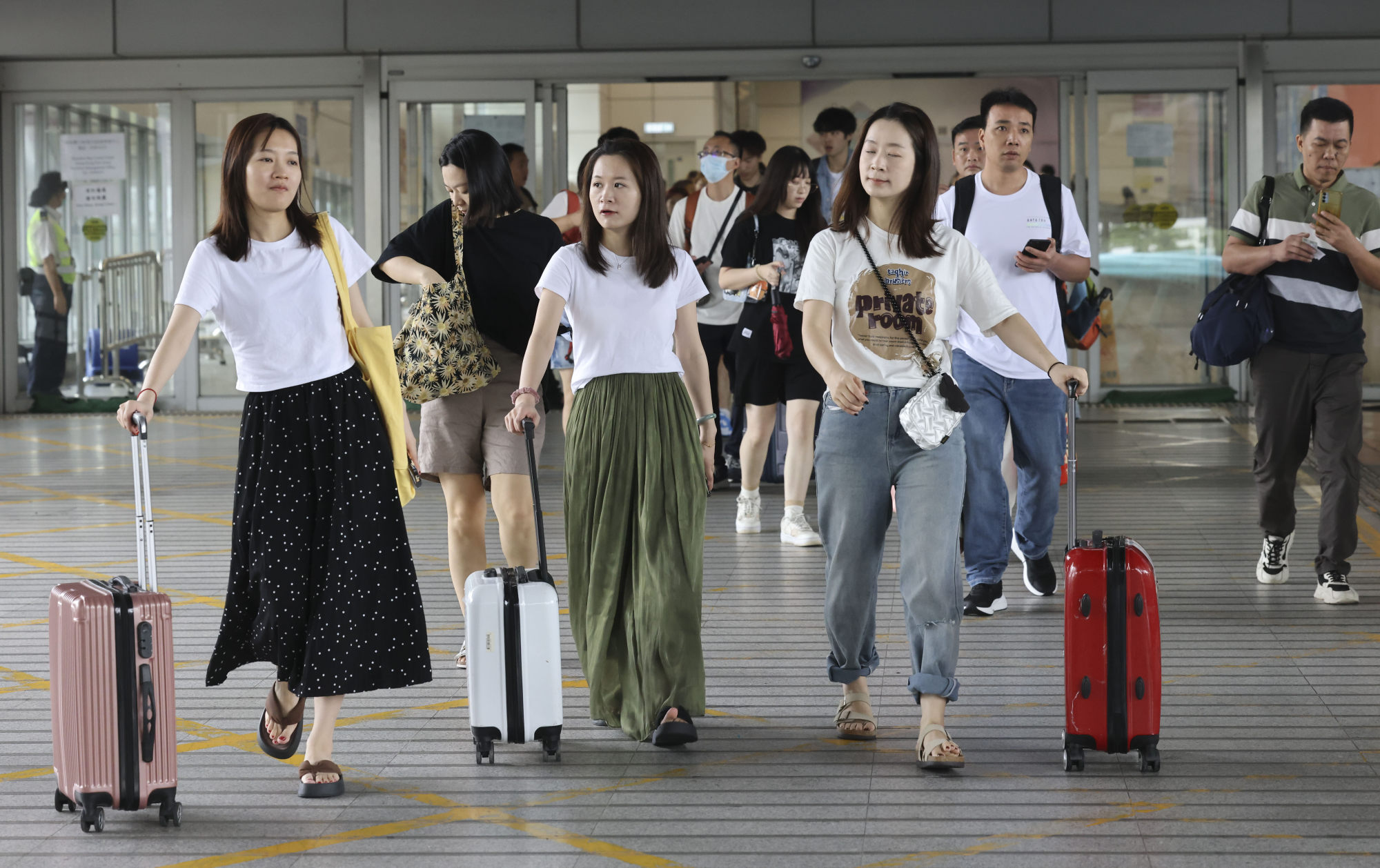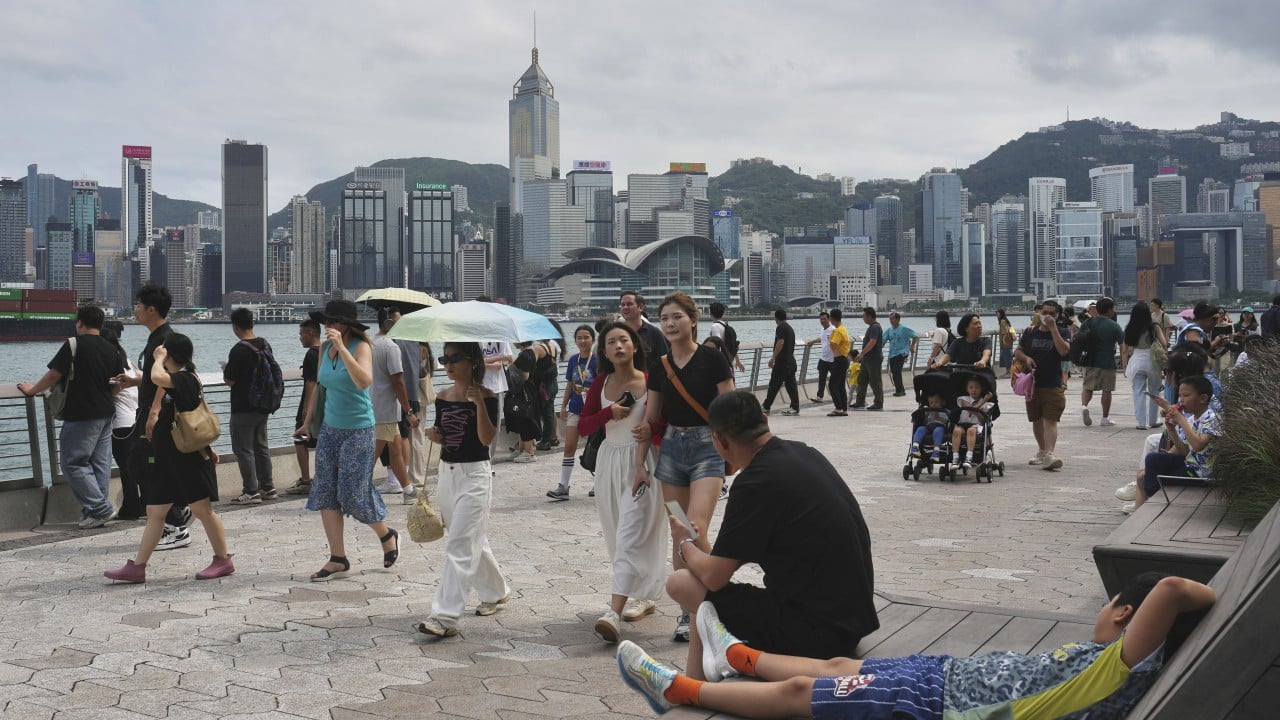Addition of 8 mainland Chinese cities to solo visit scheme expected to boost city hotels, but mainland bloggers say commute from Shenzhen cheaper
Financial Secretary Paul Chan Mo-po said on Sunday Beijing’s decision to allow residents of eight more mainland Chinese cities to visit Hong Kong as solo travellers will increase the number of overnight stays and boost the economy.
But Chinese bloggers have already suggested ways to circumvent “pricey” city hotels by staying in neighbouring Shenzhen and commuting daily across the border.
Chan said in his weekly blog that expansion of the solo pass scheme to a new total of 59 mainland cities would bring more overnight visitors and help invigorate Hong Kong’s catering, retail and hotel sectors.
“The Special Administrative Region government and its residents sincerely thank the central government for its support and care for Hong Kong,” he said.
“It will also further strengthen the cultural exchanges and people-to-people bonds between the mainland and Hong Kong.”

He was writing after Beijing’s National Immigration Administration announced on Saturday that, from May 27, residents from Taiyuan, Hohhot, Harbin, Lhasa, Lanzhou, Xining, Yinchuan, and Urumqi would be able apply to visit on a solo basis instead of being restricted to tour group trips.
The expansion was the second in three months after Qingdao and Xian were added in February – the first increase since 2007.
But a check by the Post on Instagram-like mainland social media platform Xiaohongshu found several posts that advised travellers on how to get the most value out of their visit to Hong Kong by spending their nights in Shenzhen.
“Entering Hong Kong is smooth and easy and you can dodge the hefty accommodation fees of the city,” one user wrote.
But the “strategies” were mainly aimed at people making very short trips or who had been to the city before as the individual visit pass is only valid for one or two visits over the span of three months or a year.
Extensions are available 24 hours after the original enter and exit quotas are used up at a cost of 30 yuan.
The expansion of the solo traveller scheme was welcomed by politicians and related businesses in Hong Kong, from Chief Executive John Lee Ka-chiu to the city’s flagship carrier Cathay Pacific Airways.
The change was announced at a time of sluggish retail performance. Government statistics released earlier this month showed retail sales dropped by 7 per cent year on year in March.
A spokesman for the Hong Kong Retail Management Association said it would “seize the opportunity” from mainland authorities and work with other sectors and scheduled mega events to maximise the economic benefits.
“The association understands the consumption patterns of tourists have changed, as we see them focus more on cultural and in-depth tourism instead of just shopping,” the spokesman added.
“In view of this, the retail industry will continue to strive for self-improvement, enhance competitiveness, and strive to promote Hong Kong as a ‘paradise for shopping experiences’.”
Greater Bay Airlines CEO Liza Ng Shiow-lan said on Sunday she was confident the initiative would boost Hong Kong’s economy and leverage on the city’s strong tourism recovery last year.
Hong Kong welcomed 26.7 million tourists from the mainland last year, although 14.3 million of them – about 53 per cent – were same-day visitors.
The Tourism Board figures showed same-day visitor spending last year averaged HK$1,200 (US$154) a head in the first quarter, HK$1,300 in the second, HK$1,400 in the third and HK$1,300 in the fourth.
The full year average of HK$1,300 was lower than the HK$2,000 recorded in pre-coronavirus crisis 2019.
It was also significantly less than the HK$6,900 average spent per head by overnight visitors in 2023.


